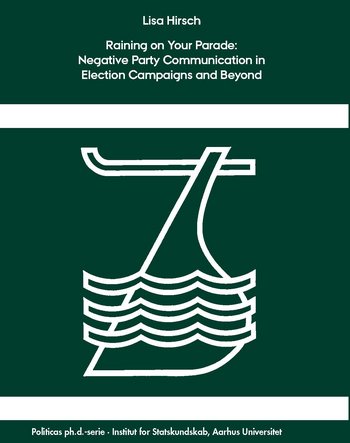Lisa Hirsch
Raining on Your Parade: Negative Party Communication in Election Campaigns and Beyond

Negative and positive are basic concepts in human interaction. Negative party communication is an example of how these concepts appear in politics. Understood as addressing another political actor in a negative or harsh way, it is more than critical policy deliberation. In electoral competition, parties face the challenge of having to highlight their own virtues but must not forget about their opponents, who attempt to do the same. The main research question is: What are the determinants of negative party communication in election campaigns and beyond, and is there any spill-over from campaigns to politics after the election? By answering this question, the dissertation contributes to research on what negative communication is, how it can be measured, and which incentives political parties face to use it in election campaigns and beyond. The focus lies on two examples of politics beyond elections: parliamentary speech and coalition formation. Both are examples of parties’ post-electoral interactions that are directly related to election results. This thesis shows that negative party communication in parliament and negative party communication in campaigns are both driven by factors on the level of the political system. The fragmentation of the political system is the most robust explanation of negative party communication. It also shows that negative party communication in campaigns has a slight prolonging effect on the duration of coalition formation.
![]() Ophavsretten tilhører Politica. Materialet må ikke bruges eller distribueres i kommercielt øjemed.
Ophavsretten tilhører Politica. Materialet må ikke bruges eller distribueres i kommercielt øjemed.